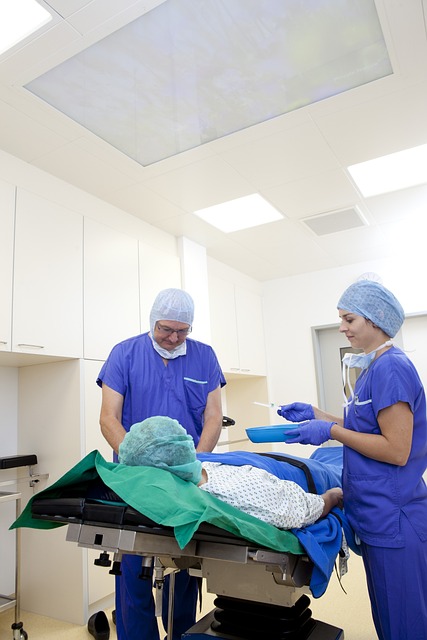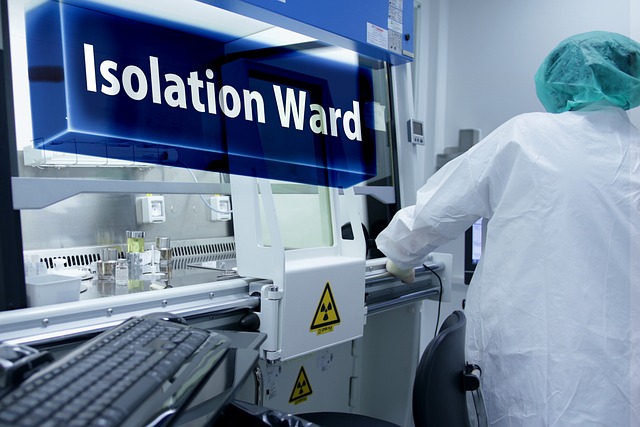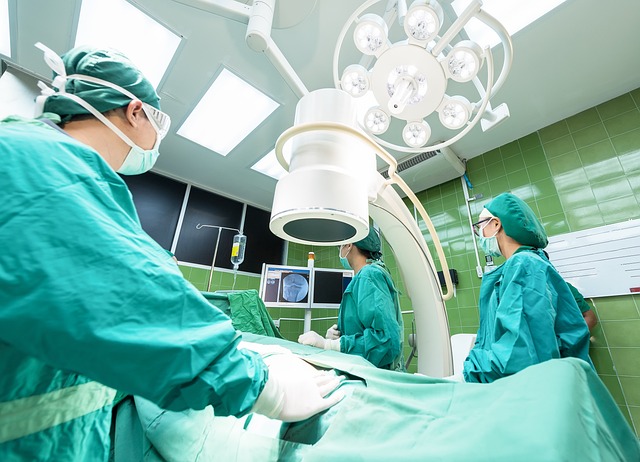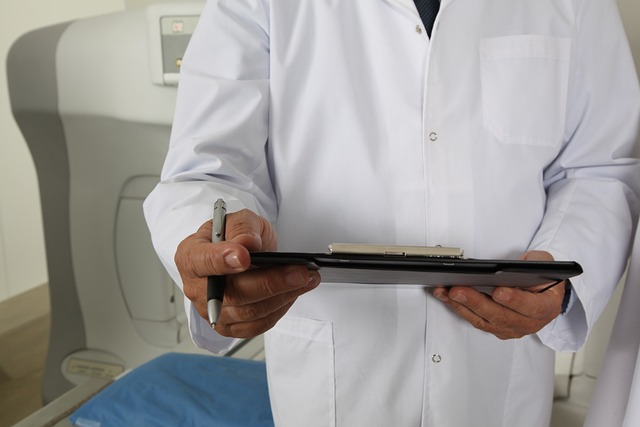Regenerative imaging represents a significant leap forward in the field of medical diagnostics, offering sophisticated advanced imaging technology that provides detailed insights into the body's regenerative processes. This diagnostic tool has improved healthcare professionals' ability to monitor and direct cellular therapies with unparalleled precision, surpassing traditional imaging methods. It uniquely captures the evolution of cell-based treatments in real-time, offering immediate feedback on their effectiveness. The integration of these imaging technologies, like MRI and CT scans, into regenerative diagnostic services has become indispensable for assessing tissue integrity and cellular health, paving the way for personalized regenerative treatments such as stem cell injections or gene therapy. Advanced medical imaging tools, equipped with sophisticated software algorithms, analyze image data to quantify biological processes, track disease progression, and evaluate regenerative treatment responses. These precision imaging techniques are a cornerstone of modern regenerative healthcare, offering a detailed non-invasive view into the body's self-healing potential, which supports innovative therapies and enhances patient care. Non-invasive diagnostics have become integral to clinical workflows, significantly alleviating patient discomfort and expediting recovery times by eliminating the need for invasive procedures. The data collected through these services not only enhances patient outcomes but also fuels the advancement of regenerative medicine, informing future innovations and interventions with scientifically grounded insights. This integration of advanced imaging technology within regenerative health has revolutionized diagnostic and treatment processes, making it a pivotal tool in precise diagnosis and personalized treatment planning, and is set to continue its critical role in the evolution of healthcare.
In the forefront of modern healthcare stands regenerative imaging, a beacon of innovation that intertwines with advanced imaging technology to redefine diagnostic tools in regenerative medicine. This article delves into the transformative impact of non-invasive diagnostics on the field, offering a comprehensive guide to the latest advancements. From precision imaging reshaping treatment outcomes to the myriad ways medical imaging tools are elevating regenerative diagnostic services, each section unravels the intricate tapestry of this burgeoning domain. Join us as we explore how these developments not only enhance diagnostic accuracy but also pave the way for personalized and effective health solutions.
- Unveiling the Potential of Regenerative Imaging in Medical Advancements
- The Role of Advanced Imaging Technology in Regenerative Healthcare
- Exploring Diagnostic Tools in Regenerative Medicine: Beyond Invasive Procedures
- Precision Imaging: A Game-Changer for Regenerative Treatment Outcomes
- Navigating Imaging for Regenerative Treatments: A Comprehensive Guide to Non-Invasive Diagnostics
Unveiling the Potential of Regenerative Imaging in Medical Advancements

Regenerative imaging is revolutionizing the field of medicine by providing advanced imaging technology that offers a detailed view of the body’s internal processes, particularly in the context of regenerative treatments. This cutting-edge diagnostic tool enables healthcare professionals to monitor and guide cellular therapies with unprecedented precision. Unlike traditional imaging methods, regenerative imaging can track the progression of cell-based therapies, offering real-time feedback on their efficacy. As a result, medical imaging tools are becoming increasingly sophisticated, allowing for non-invasive diagnostics that previously were not possible. These improvements pave the way for more personalized and effective treatment plans, ensuring better outcomes for patients undergoing regenerative procedures.
The integration of regenerative diagnostic services into the broader medical imaging landscape represents a significant leap forward in healthcare. With the advent of such technologies, clinicians can now visualize and analyze the biological responses to regenerative treatments with high resolution. This capability is crucial for the development and refinement of personalized treatment protocols, as it allows for the tracking of cellular activity, angiogenesis, and tissue repair in real-time. The potential applications of these imaging solutions are vast, ranging from orthopedics to cardiovascular health, and from aesthetic medicine to organ transplants. As regenerative medicine continues to advance, the role of precision imaging will undoubtedly become more prominent, offering new hope for patients seeking regenerative treatments.
The Role of Advanced Imaging Technology in Regenerative Healthcare

In the field of regenerative health, advanced imaging technology plays a pivotal role in diagnosing and monitoring conditions that are amenable to regenerative treatments. Regenerative imaging, specifically, has revolutionized diagnostic tools in regenerative medicine by providing high-resolution, non-invasive diagnostics that allow healthcare providers to visualize the internal structures of the body with unprecedented precision. These imaging modalities, including MRI and CT scans, enable practitioners to assess tissue integrity, vascularization, and cellular health, which are critical parameters for determining the efficacy of regenerative therapies such as stem cell injections or gene therapy. The integration of these advanced imaging tools into regenerative diagnostic services facilitates personalized treatment plans that maximize patient outcomes by ensuring the interventions are targeted and effective.
The evolution of medical imaging tools has led to the development of sophisticated software algorithms capable of analyzing image data to quantify biological processes, track the progression of diseases, and evaluate the response to regenerative treatments. These precision imaging techniques not only aid in the diagnosis but also in the continuous monitoring of patients’ conditions, ensuring that treatments are adjusted as necessary throughout the healing process. This iterative approach to diagnostics and treatment is a cornerstone of regenerative healthcare, offering a non-invasive, detailed look into the body’s natural ability to heal and repair itself, thereby paving the way for innovative therapies and improved patient care.
Exploring Diagnostic Tools in Regenerative Medicine: Beyond Invasive Procedures

The field of regenerative medicine has witnessed a paradigm shift with the advent of advanced imaging technology. Regenerative imaging, specifically, has emerged as a pivotal diagnostic tool in this domain, offering unparalleled insights into the body’s healing processes. These sophisticated imaging solutions provide real-time visualization of tissue regeneration and repair, enabling practitioners to tailor regenerative treatments with unprecedented precision. The integration of non-invasive diagnostics into the clinical workflow has significantly reduced the reliance on invasive procedures, thereby minimizing patient discomfort and shortening recovery times. These imaging modalities, such as MRI and CT scans, offer a detailed view of the internal structures without the need for incisions or injections, allowing for a more holistic approach to patient care in regenerative medicine.
In contrast to traditional medical imaging tools that often provided a static snapshot of a patient’s condition, modern regenerative diagnostic services employ cutting-edge technology to monitor and analyze dynamic biological processes. These services are instrumental in guiding treatments like stem cell therapy, platelet-rich plasma injections, and gene therapies, ensuring their efficacy by providing detailed feedback on the body’s response. As a result, the integration of such imaging solutions into regenerative treatment protocols is not just beneficial for patient outcomes but also for advancing the field of regenerative medicine itself, as clinicians gather valuable data to inform future innovations and interventions.
Precision Imaging: A Game-Changer for Regenerative Treatment Outcomes

In the field of regenerative health, precision imaging has emerged as a game-changer, offering unparalleled accuracy and clarity for diagnosing and treating various conditions. Regenerative imaging leverages advanced imaging technology to provide detailed visualizations of tissue and cellular activity, enabling healthcare providers to tailor treatments with unprecedented specificity. These diagnostic tools in regenerative medicine are crucial for pinpointing the exact areas that require intervention, leading to improved outcomes through more effective and less invasive procedures. Non-invasive diagnostics, facilitated by these imaging solutions, allow for the monitoring of the healing process without the risks associated with traditional surgical methods, ensuring a safer and more optimized treatment journey.
Imaging for regenerative treatments has evolved significantly, with cutting-edge medical imaging tools now capable of tracking cellular responses to therapies in real time. Regenerative diagnostic services are enhancing the precision with which medical professionals can administer stem cell therapy, gene therapy, and tissue engineering, among other advanced treatments. This level of sophistication in non-invasive diagnostics is instrumental in the success of regenerative medicine, as it provides a clear roadmap for the body’s natural healing mechanisms to follow, ultimately leading to better patient outcomes and a more predictable treatment trajectory. With each advancement in precision imaging, the potential for regenerative health treatments grows, offering hope for those suffering from conditions that were once considered untreatable.
Navigating Imaging for Regenerative Treatments: A Comprehensive Guide to Non-Invasive Diagnostics

In the burgeoning field of regenerative health, precision imaging stands as a cornerstone for accurate diagnosis and effective treatment planning. Advanced imaging technology has revolutionized diagnostic tools in regenerative medicine, enabling practitioners to visualize the intricate processes of tissue repair and organ regeneration with unprecedented clarity. Regenerative imaging not only captures the current state of the body but also predicts potential healing trajectories, allowing for personalized interventions that harness the body’s natural restorative abilities. These non-invasive diagnostics offer a window into the complex biology underlying regenerative treatments, ensuring that therapies are tailored to each patient’s unique physiological needs.
The integration of advanced imaging technology into regenerative diagnostic services is pivotal in the evolution of medical care. It allows healthcare providers to monitor the progression of regenerative therapies with high precision and adapt treatment protocols accordingly. This dynamic approach to diagnosis using non-invasive methods spares patients from the risks associated with traditional surgical interventions, leading to more holistic and less disruptive health outcomes. As such, imaging for regenerative treatment is becoming an indispensable component of modern medical practice, driving innovation and enhancing patient care through minimally invasive solutions.
Regenerative imaging has emerged as a transformative force within the realm of medical advancements, offering unparalleled precision and non-invasive diagnostics that significantly enhance the effectiveness of regenerative treatments. The integration of advanced imaging technology in regenerative healthcare not only improves patient outcomes but also reduces the reliance on invasive procedures. This comprehensive guide delineates the various diagnostic tools available in regenerative medicine, emphasizing their role in tailoring treatments to individual needs. As we continue to innovate and refine these medical imaging tools, it is clear that regenerative diagnostic services will play a pivotal role in the future of healthcare, providing personalized care with minimal discomfort to patients. Precision imaging stands out as a game-changer, offering insights previously unattainable, thereby setting the stage for more efficient and effective interventions in the field of regenerative medicine.
